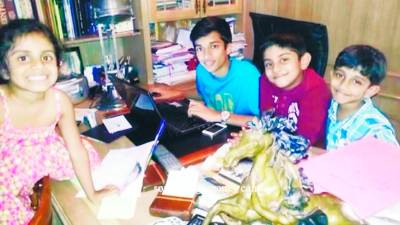While Malaysia retains a high literacy rate (94.64%), there is a declining reading culture with low book consumption, evidenced by a recent ranking of 37th globally for reading only 5 books annually. So despite the strong literacy presence in Malaysia, the lack of a reading culture is a cause for concern.
Where it was found most lacking was in the reading literacy results in the Programme for International Student Assessment (Pisa) 2022, which saw a reduction from 415 to 388 points.
The Malaysian government in its efforts to redress the gap introduced the 2022/2023 Malaysians’ Reading Profile Study, designed to gauge the reading culture by studying a total of 100,000 respondents aged 5 and above from a variety of diverse backgrounds. The efforts are aimed at reversing the decline in reading rates.
Cultivating a reading habit
For me, having attended a convent school in Malacca, reading became a natural habit as there was an active library in the school. Books were expensive so we borrowed from the library and everyone looked at what each other was reading, and it was encouraged by parents and teachers.
Reading opened up another world for me. As for reading different types of authors, each one presented a window into another world especially authors such as Beatrix Potter, Lewis Carroll (Alice in Wonderland), Dr Seuss and later I progressed to books such as ‘To Kill a Mockingbird’ and ‘Gone with the Wind’.
Today, unfortunately the world of digital technology has overtaken the minds of young children with hand phones rather than books being placed in the hands of children and even adults are addicted to their phones, which does little to promote reading.
Why reading is important
Lawyer Nazli Anim Dato Hj Mohd Ghazali, 60 yrs, now retired, said reading was always an integral part of her life growing up,
“My father read a lot. He always stressed the importance of reading and acquiring knowledge. And so I grew up with books. I love reading and it is my hobby. Reading is important to me as I gained much knowledge, joy and solace from the activity. Reading is also a form of escapism where I can slip into the world of words which are before me in the form of books. I started off with fairy tales and Enid Blyton (author) type of books, which I believe ignited my curiousity to explore the world.
“Words are very useful tools to have, because to say what you mean, and to mean what you say, you have to build an expansive vocabulary and one has to read, and read good books in order to acquire a good vocabulary,” she said.
In 2017, Naz as she is fondly known among friends founded a book club based in Bangsar.
“I want to read seriously, as I am now retired and a lady of leisure, free to pursue what is close to my heart, reading. My book club, ‘The Classics Challengers’ deals mainly with ‘classic’ books, which are not necessarily easy to read,” she added.
Naz said the book club has around 100 members and they meet regularly to have discussions on books.
Another strong exponent of reading, Dato’ Freida Pilus, who founded Cempaka School in 1983, which today has grown into Cempaka Schools believes in promoting a love of reading.
“We believe that reading is more than a skill, it is a lifelong habit and a cornerstone of intellectual and personal growth. Reading opens a window to the world, broadening horizons, nurturing curiosity and shaping character. Through stories, children learn empathy, resilience and the power of imagination; through knowledge, they gain the confidence to question, create and lead,” she said.
Freida said in Cempaka Schools, there was an introduction to literacy in the early years, where children were introduced to the joy of words, rhythm and sounds, laying a strong foundation for literacy.
“There is also a structured phonics programme, which equips our young learners with the essential building blocks for decoding and understanding language,” she added.
Bringing books to life
Freida shared that teachers would bring books to life through storytelling and read aloud sessions, sparking imagination and fostering a deep emotional connection to stories.
“Reading naturally leads to expression. Through creative writing exercises, students learn to connect what they read with their own ideas, cultivating voice and originality.
Why emphasise reading?
Again, Freida felt that it expanded world views, built character, strengthened academic success, fueled creativity, innovation and encouraged lifelong learning.
“A love for reading ensures that knowledge-seeking becomes a natural habit, not a chore,” she added.
Is there hope for Malaysia to build up a reading culture?
Sharon Bakar, author, editor and teacher for 41 years feels all is not lost as the older generation seems to have realised that reading has many interesting facets and she promotes “Readings” (meetings held monthly) to encourage aspiring writers by giving them a platform, to read their work and socialise. The map can be found at
%E2%80%9CThere%20″> www.seksan.com
“There is much more discussion of books. The quality of writing of books that we have vetted and gone through for various short story competitions seems to have improved considerably. There are literary festivals held annually in George Town and the KL Alternative Book Fair is held regularly and is always a very popular event,” said Sharon.
